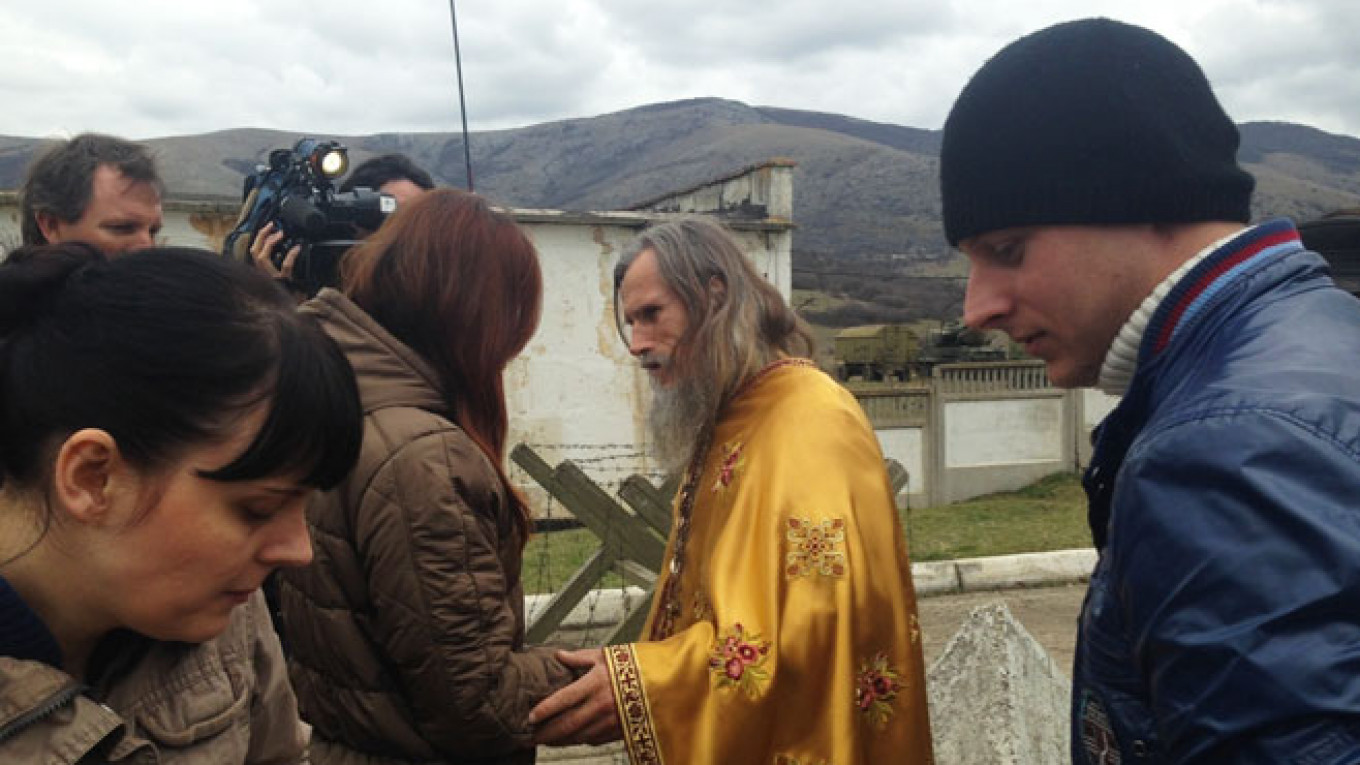The prospect of an armed conflict between two "brotherly nations" has shaken Moscow's Ukrainian community, whose mixed allegiances leave them torn between their homeland and country of residence.
A survey conducted in February by the Levada Center, a Moscow-based nongovernmental research organization, found that 63 percent of Russians considered themselves "neutral" in the conflict between the ousted Yanukovych government and the Euromaidan protest movement. But neutrality — and even apathy — seems to have vanished after Russian troops entered Crimea, including among the Russian capital's 150,000 Ukrainians.
"I sense that condescension towards Ukraine is at its highest right now," said Vladislav Kiiko, a Ukrainian photographer based in Moscow. "We have always been viewed as an incapable little Russia. But now, because of this conflict, I have been told to go back to my country if I do not agree with Russian troops' presence in Crimea."
Moscow's Ukrainians — both Russian-speaking and Ukrainian-speaking — sense that they are caught in the middle of a family feud.
"Condemning this conflict does not mean you have to hate everybody on the other side," Kiiko said. "People need to understand that your heart can be both in Ukraine and in Russia."
When the Soviet Union collapsed in 1991, 25 million Russians lived outside the Russian Soviet Republic. Twenty-three years later, many Russian-speakers in the former Soviet republics have become members of states that are not their historical homeland, although they still foster a strong allegiance to the Russian language and culture.
"I am a Russian-speaker, but I am Ukrainian," said Viktor Tratsevsky, a rock climbing instructor from Sevastopol who lives in Moscow. "Sevastopol has always had a 'Russian' mentality, but I still feel that my homeland is Ukraine."
Mixed allegiances also make it difficult for Russia's Ukrainians to pick a side.
"I do not support either side in this conflict," Tratsevsky said. "I do not think the Russian authorities are superior to the Ukrainian ones. If I were living in Crimea right now, I would not view Putin as my president. I am mostly concerned about my family right now, to be honest."
As the heads of four Ukrainian broadcasting corporations called for "open, balanced and unbiased coverage of present-day events in Ukraine" in an open letter to their Russian colleagues, Ukrainian expatriates have echoed Ukrainian media's discontent at the flow of misleading information coming from their homeland.
"It is insulting to see how the Russian media is portraying this conflict," said a Ukrainian school teacher, who wished to remain anonymous for fears of repercussions by her superiors. "They are saying that people in Kharkiv want to join Russia. But that is not actually what is going on there."
Others, like Alexander Zhelenyak, a Ukrainian working in the Russian publishing industry, prefers to reference Kiev-born writer Mikhail Bulgakov to express his disgust at the indigestible coverage of the region.
"In 'Heart of a Dog,' Bulgakov wrote, 'Do not read Soviet papers before lunch' if you care about your digestion," he said. "I have stopped looking at all these contradictory reports. They are making me sick."
For photographer Kiiko, a native of the southern Ukrainian city of Nikolayev, there is an Orwelian feel to the news coming from home.
"I feel like I am reading '1984' all over again," he said. "Footage from Kiev is said to have been taken in Crimea, and people are starting to believe things that are false because they see it on television."
Contact the author at g.tetraultfarber@imedia.ru
A Message from The Moscow Times:
Dear readers,
We are facing unprecedented challenges. Russia's Prosecutor General's Office has designated The Moscow Times as an "undesirable" organization, criminalizing our work and putting our staff at risk of prosecution. This follows our earlier unjust labeling as a "foreign agent."
These actions are direct attempts to silence independent journalism in Russia. The authorities claim our work "discredits the decisions of the Russian leadership." We see things differently: we strive to provide accurate, unbiased reporting on Russia.
We, the journalists of The Moscow Times, refuse to be silenced. But to continue our work, we need your help.
Your support, no matter how small, makes a world of difference. If you can, please support us monthly starting from just $2. It's quick to set up, and every contribution makes a significant impact.
By supporting The Moscow Times, you're defending open, independent journalism in the face of repression. Thank you for standing with us.
Remind me later.






